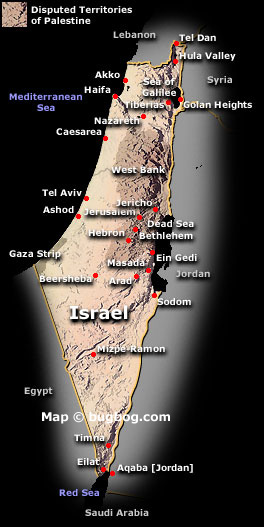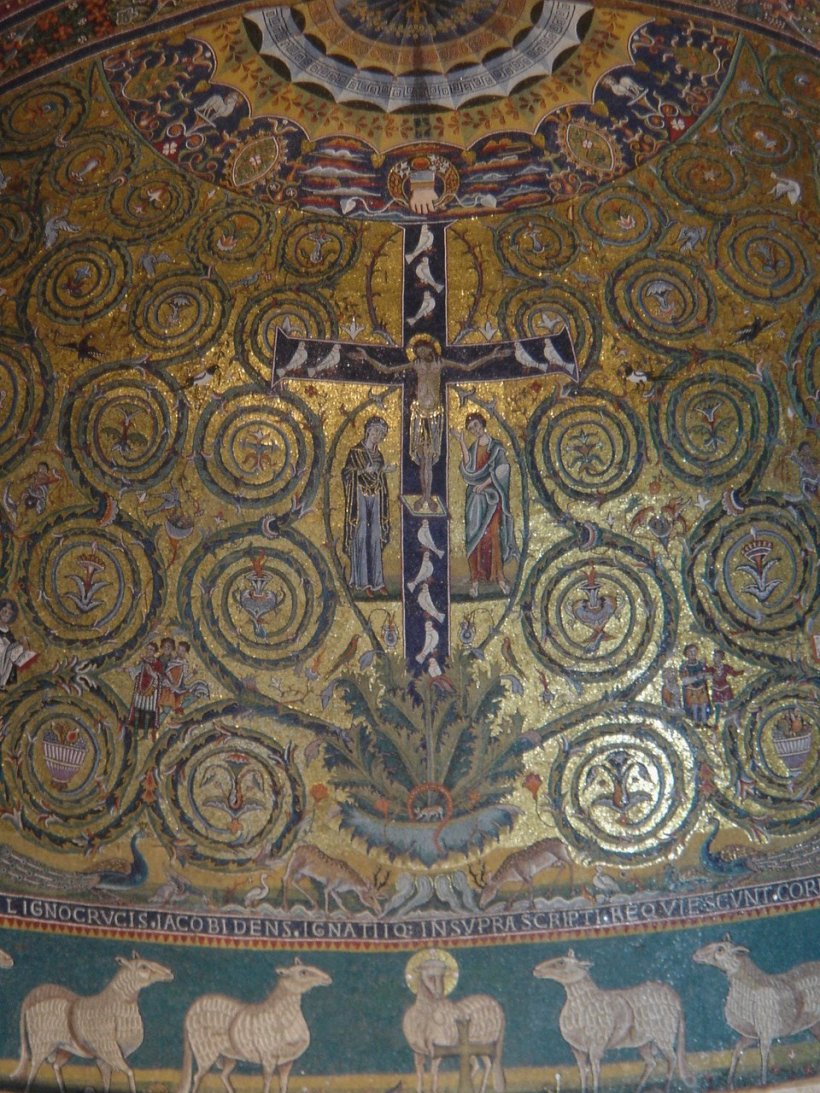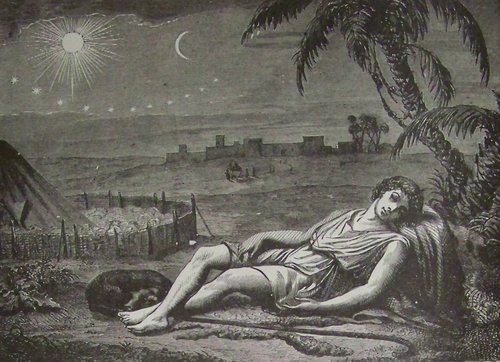The conclusion of Genesis narrates how the descendants of Abraham came to leave the Holy Land. In other words, it narrates how our people came to leave the land of Canaan after living there for three generations. One thing makes this particular people unique: we worship the God in Whom Abraham believed. And the conclusion of Genesis recounts this part of our history.
 It all began with God revealing Himself to Abraham. Abraham learned something of God’s plans. Much mystery remained. But Abraham learned that the whole world would be blessed through his descendant. This divine revelation established an alliance between God and Abraham’s people.
It all began with God revealing Himself to Abraham. Abraham learned something of God’s plans. Much mystery remained. But Abraham learned that the whole world would be blessed through his descendant. This divine revelation established an alliance between God and Abraham’s people.
And we can see in today’s reading at Holy Mass how this alliance continued as a sacred tradition. In other words, from the very beginning, our holy religion has been a matter of handing down divine revelation from one generation to the next.
Abraham’s grandson Jacob was himself the patriarch of a very large family. Jacob would not leave the Promised Land without sacrificing to the God of his father Isaac, Who is the God of Abraham.
We see from what happened that the alliance—the covenant between Abraham’s people and God—this does not preclude new things from happening. God spoke to Jacob at the southern boundary of the Holy Land. God told Jacob to go without fear into Egypt. Your going into Egypt will not break the alliance. In fact, doing so will strengthen it. Your going into Egypt is part of my plan for your people, for the people of Abraham. Thus the Lord directed Jacob at this fateful moment.
So a living sacred tradition does not atrophy a people. Rather, it allows us to move forward through history without losing ourselves in the great ebb and flow of time. Because we have inherited the holy tradition which God inaugurated by speaking to Abraham, we can greet everything that the present sends our way. But we will fall out of alliance with God, and lose ourselves in the process, if we do not always act in accord with the sacred tradition we have inherited.
As the Fathers of the Second Vatican Council put it:
In His gracious goodness, God has seen to it that what He had revealed for the salvation of all nations would abide perpetually in its full integrity and be handed on to all generations. (Dei Verbum 7)
So we rejoice to receive from our fathers the mystery of salvation that belongs to the Church. And because we keep faith with it, we have nothing to fear from whatever comes our way today. We do not face the present alone; we face the events of today as members of the ancient People of God.

